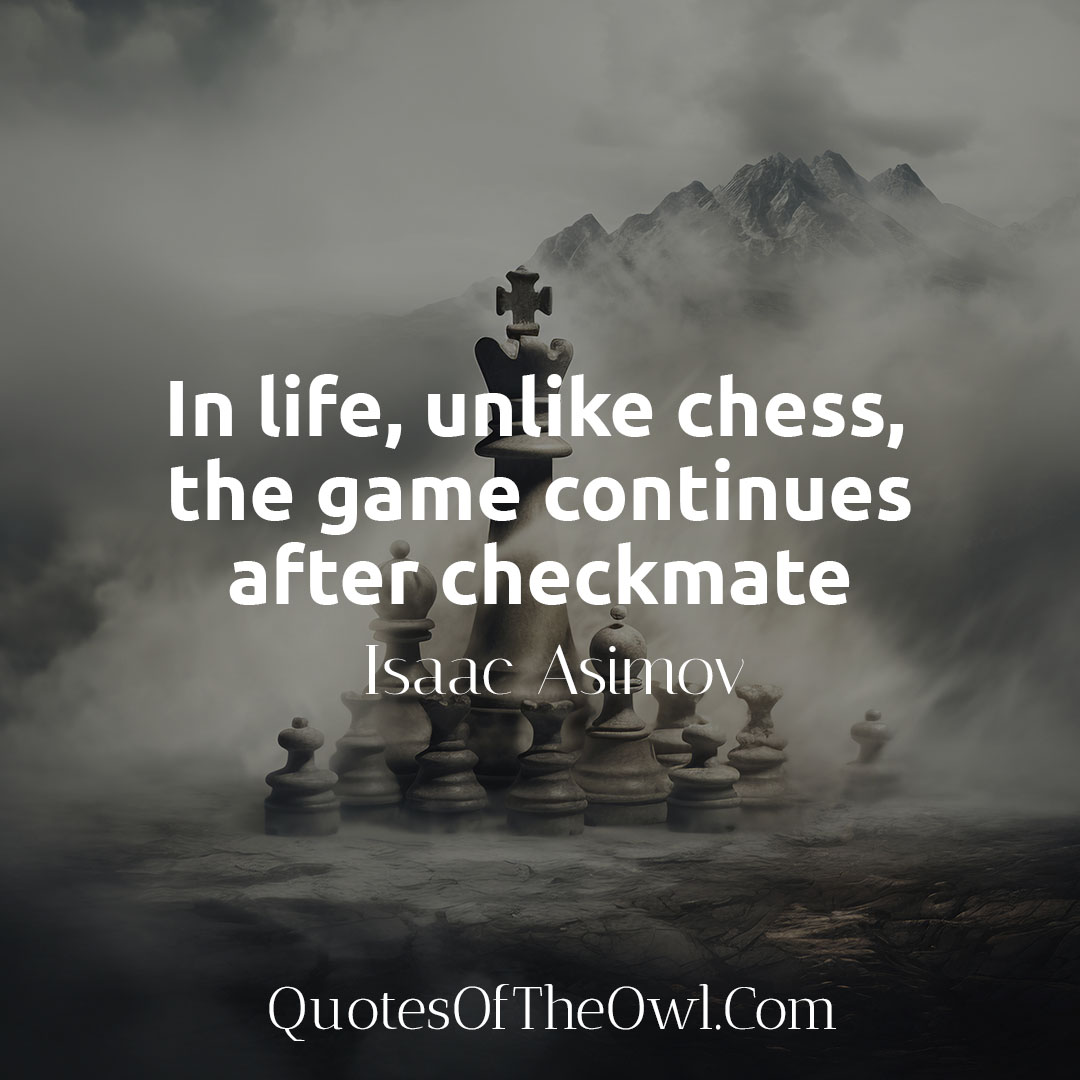In life, unlike chess, the game continues after checkmate – Isaac Asimov
Life is a complex and unpredictable journey filled with ups and downs, victories and defeats. Isaac Asimov, a prolific author and biochemist, once said, “In life, unlike chess, the game continues after checkmate.” This quote encapsulates a profound truth about the human experience. Unlike the rigid confines of a chessboard, life offers endless opportunities for growth, learning, and redemption, even after what seems like a decisive defeat.
Understanding the Quote
Isaac Asimov’s quote draws a vivid comparison between life and the game of chess. In chess, “checkmate” signifies the end of the game; there is no further move to make, and the outcome is final. However, in life, even after experiencing significant setbacks or failures, the journey continues. This fundamental difference highlights the resilience and adaptability inherent in the human spirit.
Life Beyond Checkmate
In life, setbacks are not endpoints but rather opportunities for new beginnings. When faced with adversity, people have the chance to reflect, adapt, and move forward. This resilience is what makes life dynamic and continuously evolving. For instance, consider individuals who have faced career failures only to reinvent themselves and achieve greater success later on. Their stories demonstrate that “checkmate” moments can be springboards to new and unforeseen opportunities.
Chess vs. Life
Chess is governed by strict rules and defined outcomes. Once a checkmate is declared, the game is unequivocally over. Life, on the other hand, is far more fluid and unpredictable. It does not adhere to a fixed set of rules, allowing for a multitude of paths and outcomes. This inherent flexibility means that even in the face of failure, life offers numerous chances to pivot, recover, and thrive.
The Role of Perspective
Perspective plays a crucial role in how individuals interpret and respond to setbacks. Viewing a “checkmate” moment as a definitive end can lead to despair and resignation. However, seeing it as a temporary challenge opens the door to growth and new possibilities. A positive mindset and a growth-oriented attitude enable individuals to transform obstacles into opportunities for learning and development.
Historical and Cultural References
History is replete with examples of individuals who faced seemingly insurmountable obstacles yet persevered. Thomas Edison, who failed thousands of times before inventing the light bulb, is a classic example. Cultural depictions, from literature to movies, often celebrate this theme of resilience. Characters in stories who overcome great odds resonate with audiences because they reflect the enduring human spirit.
Personal Development
Dealing with setbacks requires resilience and mental toughness. Strategies such as setting realistic goals, maintaining a positive outlook, and embracing failure as a learning experience are vital. Continuous learning and adaptation are also crucial, as they allow individuals to stay relevant and resilient in the face of change.
Practical Applications
Applying Asimov’s quote to daily life involves recognizing that setbacks are part of the journey. In professional settings, this might mean seeing a failed project as a learning experience rather than a career-ending event. In personal relationships, it could involve working through conflicts and emerging stronger. Embracing resilience can enhance both personal and professional growth.
Conclusion
Isaac Asimov’s quote, “In life, unlike chess, the game continues after checkmate,” serves as a poignant reminder of the resilience and adaptability that define the human experience. Setbacks and failures are not final; they are integral parts of life’s journey, offering opportunities for growth and renewal. Embracing this mindset can lead to a more fulfilling and resilient life.

